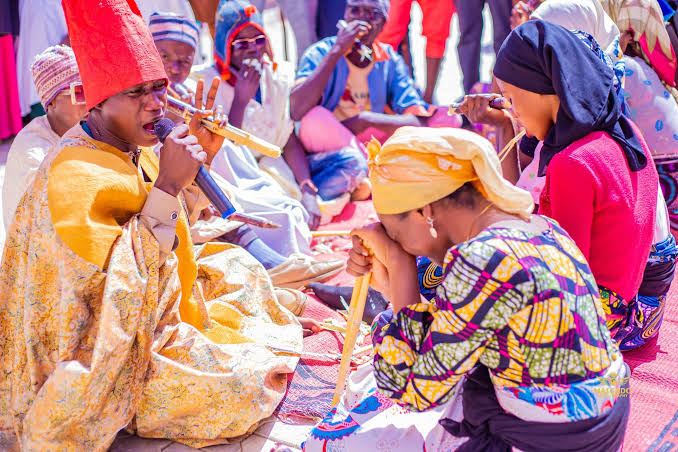The Kano State Censorship Board has announced a statewide ban on the celebration of “Kauyawa Day,” a popular cultural practice during wedding ceremonies.
The Board said the move was part of broader efforts to preserve public morality, protect cultural values, and maintain social order in the state.
Kauyawa Day is traditionally observed by friends and relatives of the couple, usually a day or two before the main wedding event.
It involves a lively gathering where wedding guest dress in traditional garb, local items, including indigenous food, native fruits and water in traditional cauldrons are also displayed during the celebration.
Over time, however, the event has become increasingly extravagant, with loud music, wild dancing, and circulation of videos on social media which have drawn criticisms from some segments of society.
In a press briefing held in Kano, the Executive Chairman of the Board, Abba El-Mustapha stated that the celebration in its current form no longer aligns with the moral and religious ideals upheld by the people of the state.
Details of the ban were contained in a statement issued by the Board’s Public Relations Officer, Abdullahi Sani Sulaiman.
“We are taking this step to safeguard societal values and promote peace across the state,” El-Mustapha said. “The way ‘Kauyawa Day’ is being celebrated today—often marked by indecent dressing, suggestive dancing, and the spread of unwholesome content—poses a threat to our collective sense of decency.”
All event centres and party halls have therefore been prohibited henceforth, from hosting any activity related to Kauyawa Day until relevant regulations were reviewed and updated.
El-Mustapha also stated that the Board would collaborate closely with security agencies to ensure compliance.
“Beyond enforcement, we are engaging community stakeholders—elders, youth groups, and religious leaders—to raise awareness about the implications of the celebration and build public support for the ban,” he said.
The Kano State government also charged clerics to play significant role in the sensitisation campaign. “We urge imams and Islamic scholars to use their platforms to educate parents and community members about why this ban is necessary.”
According to the Chairman, district heads, ward leaders, and village chiefs have also been asked to support the enforcement at the grassroots level.
El-Mustapha warned that firm action would be taken against any individual or group that attempts to defy the ban.





